My travels to China also accidentally brought me to all of the four ancient great capitals of China – Beijing, Luoyang, Xi’an, and Nanjing. I had spent a lot more time in Beijing, hence the separate post. I didn’t spend as much time as I would have wanted to in the other ancient great capitals of China, but I had still taken some photos and notes.
Luoyang
One of the first things I immediately noticed after stepping out from the train station at Luoyang is that there are a greater number of female taxi drivers than other cities in China so far. Upon stepping into a taxi, I ran straight into a language barrier. I speak mandarin conversationally. The taxi in Luoyang however, was the first time I’ve felt so useless even when speaking mandarin. I couldn’t understand the driver in the least bit because he had a very strong accent. And yes, I also learned that accents exist in the Chinese language.
In Luoyang, we also learned that there exists hotels that are not licenced to serve foreigners. We had booked our hotels using eLong, and when we arrived at Luoyang, we were told that the hotel booked wasn’t licenced to serve foreigners. We ended up spending a whole day walking around the city dragging our luggages, looking for hotels.
The highlight of Luoyang was of course the Longmen Grottoes (龙门石窟). My companions thought I was mad for hunching over a spot for over 1 hour just to take this one photo:
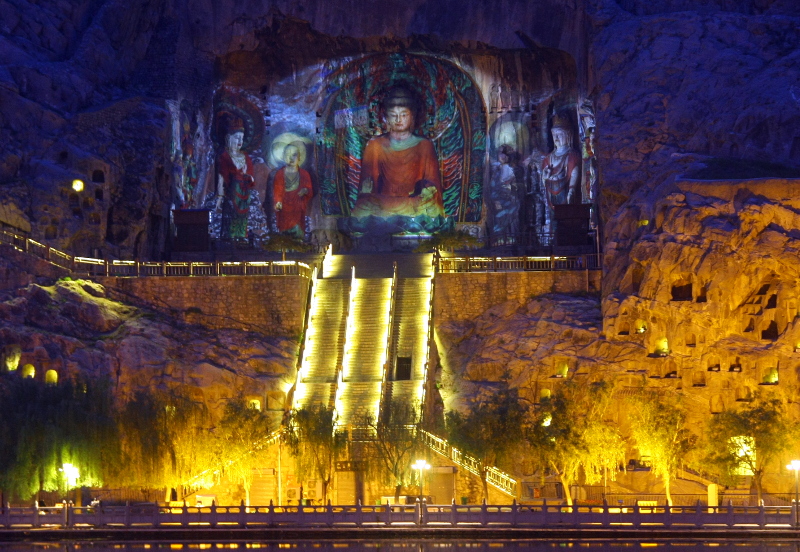 .
.
The rest of my trip in Luoyang wasn’t very interesting or noteworthy. It’s a shame though, because Luoyang was the capital city for many a great dynasties in China and I didn’t get to explore them all due to conflicting plans. However, a particularly interesting thing of note was that in a night market in Luoyang, there were many stores selling “fried yoghurt”, in the same way Burch and Purchase makes their “fried egg” with an anti-griddle. What’s interesting is that they use pretty ghetto versions of the anti-griddle. Interesting how the similar devices are used in the super avant-garde high end restaurants, and the relatively low end street food stall.
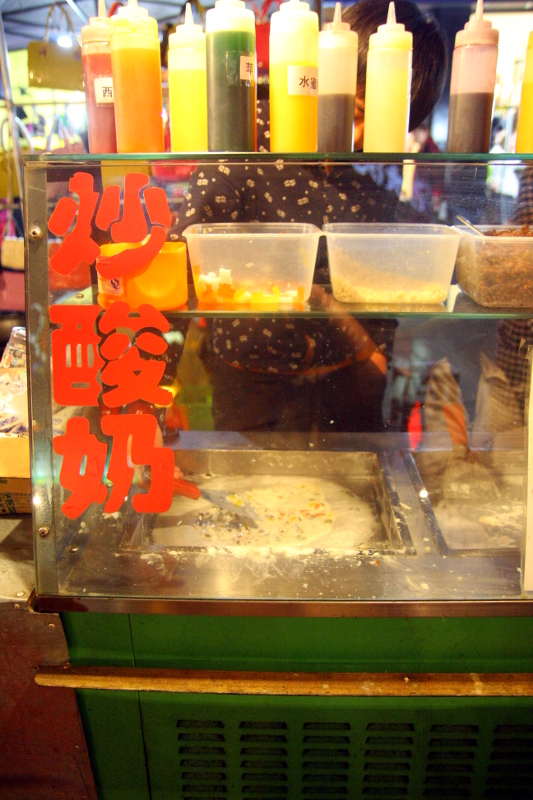
Things I Thought About
If Beijing were not chosen as the capital city by the modern Chinese government, would it have suffered the same fate as Luoyang? I imagined an alternate universe where say, Ningbo was chosen as the capital city by Mao Zedong instead of Beijing. How different would Beijing be? Would it still have 10 million people living in it? Are the strategic advantages of cities inherent? Consider Bruges and Antwerp, when the river Zwin silted up, Antwerp became the main city of trade instead of Bruges.
Xi’an
Xi’an too was a blur due to conflicting schedules. There are many things to do and see in Xi’an, but those plans were cut short by poor planning and understanding of the town. Nonetheless I was able to glean some interesting things of note in Xi’an.
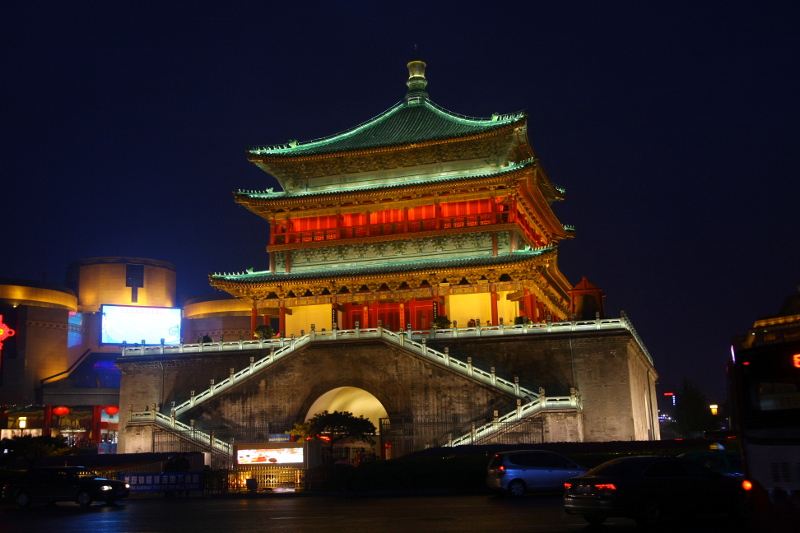
The lighting of old buildings in Xi’an is far subtler than lighting of old buildings in Luoyang, Beijing or Nanjing (the most garish of all IMO). This led to a number of really nice pictures of older buildings in the city. The subway system too is more developed than in Luoyang (which had only one line – Xi’an has two).
The average salary in Xi’an is about RMB 2000 per calendar month. The rent is high, relatively to the mean salary – about RMB 400 a month. Surprisingly, despite being viewed as less advanced than Beijing (and a far smaller population), I discovered that the living costs in Xi’an is actually quite comparable to the living costs in Beijing. This obviously leads to a wealth disparity across China.
Coming from advertising, I tend to pay attention to advertising quite a bit. The outdoor advertising found in Xi’an and Luoyang are of made of material which are inferior to outdoor advertising in Beijing, Nanjing or Shanghai. They are also aren’t as well maintained as can be found in the bigger cities. An ad of particular interest to me was an ad for local county tax collection. The message was something along the lines of “please pay your taxes, as taxes are the blood vessels of this county”. I thought it was interesting, given that China is traditionally seen as a country whose government knows-it-all.
That said, the locals are accutely aware that they’re living in an ancient city. They all seem to be very well versed with the lore (or at least the common version of the lores). Just bring up a topic about Qin Shi Huang(秦始皇) or the Han dynasty and the locals will talk your ear off with all the history the place has to offer. Based off my limited experience, this happened with almost all of the locals I encountered (about 20 or so). They’re very in touch with the history of the place.
My plans to go see the Terracotta warriors, Qin Shi Huang’s tomb and ride a bike on the city walls were unfortunately dashed as business calls and we needed to go to Nanjing. I had been very very excited to visit Xi’an also because it was the cradle of openness during the Tang dynasty (when the city was called Chang’an). Naturally, there was some diappointment there.
Things I Thought About
A continuation of what I thought about in Luoyang – the inherent strategic advantages of a city. During World War 2, the Japanese launched only a few assaults on Xi’an because it was far inland. It is one of the most used capital cities in ancient China – for this reason, I suspect. Does a capital city need to rely on trade? Xi’an was the eastern endpoint of the Silk Road, so that’s a trade route there.
Nanjing
I explored a very very tiny (touristy) section of Nanjing – the area around the Confucian Temple and the area around the Qinhuai river. There wasn’t much there to see – most of the things about Confucius I had already been aware of. There were a lot of scammers doing palmistry and fate reading and nonsense like that, which I had no interest in.
When night fell, I did manage to go to the edge of the lake and snapped this photo:
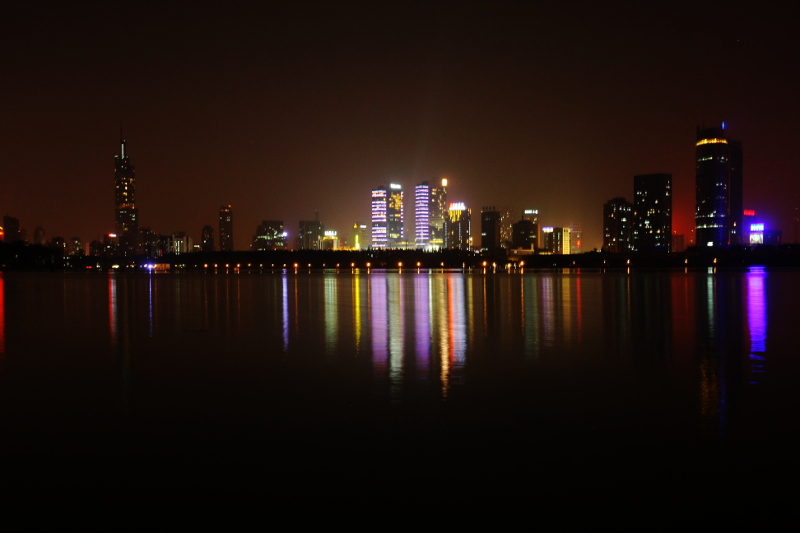
It was a peaceful night. I got to observe the people of Nanjing doing what they do best. The area is outside the Nanjing Railway Station (incidentally, it’s a gigantic railway station). Outside the railway station, there are people camping out there. Upon inquiry, I discovered that they were mostly immigrants from other counties in China – they left their towns and villages for a chance at better lives in the big city, many who were willing to (and sadly only qualified to) work the most menial of jobs.
It was a pretty sobering thing to think about. My peace and quiet of introspection and thinking was eventually broken up by some proselytizing Christians by the lake. They had set up a song-and-dance thing which attracted many locals. After a few numbers, the sermons came – all in Mandarin about the fate of one’s soul after death. I was frankly quite disgusted by the proselytization and the bait-and-switch, so I left.
In Nanjing, I too had a meal with a local doctor and he intimated to me some interesting details about the mid-sized hospital he works in. On average, the hospital sees 15000 patients a day, and hires about 1000 doctors and nurses combined. Let that sink in for a bit. An average morning for him means about seeing about 80 patients before lunch time. That is an insane workload. We also talked about the increasingly litigative nature of the average Chinese citizen, and how it was adversely affecting the supply of doctors. In fact, a lot of the conversation centered around the attitude of Chinese patients in hospitals. It was a rather enlightening day.
Things I Thought About
The taxi driver is really quite noisy and nosy. Also, damn good of an upseller. He should probably stop trying to upsell. Not buying his full day tour package.
Hangzhou
After nearly a week of messed up schedules, I did manage to spend a far longer time in Hangzhou. There is really only one word to describe Hangzhou: beautiful. The place is beautiful, and the people are very beautiful too – it’s not difficult to find even complexion and smooth skin in Hangzhou.
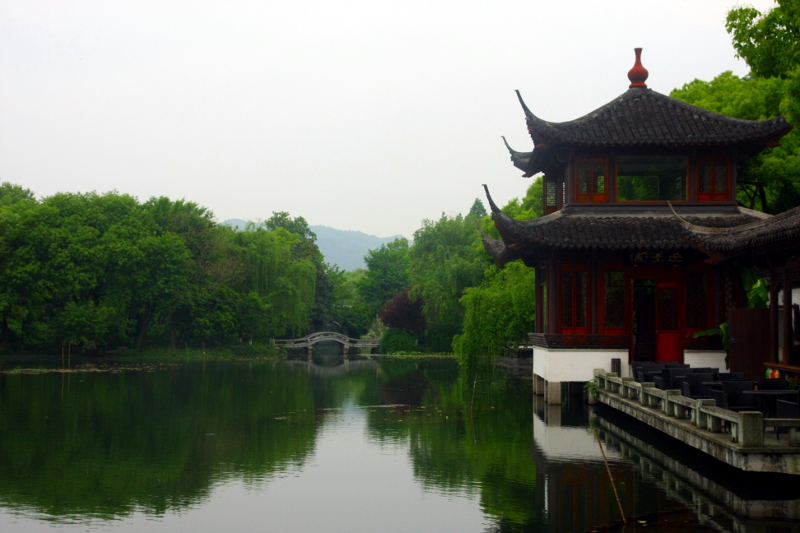
Central to Hangzhou’s beauty is the West Lake – a place where many stories that I had known since I was a mere child was set, from the Legend of the White Snake to the legend of Three Ponds Mirroring the Moon (tl;dr – man creates a giant urn to pray to the gods, but the giant urn overturn and fell into the legs, leaving only its legs above water. When lit from inside it looks like a moon reflected off the water). Being there at the West Lake, it is quite understandable why the bohemians of ancient Chinese dynasties flock to this place.
Rightly so, there is a performance art piece on the West Lake itself – Impression West Lake, directed by none other than Zhang Yimou. It’s a dazzling display of light and water. It was frankly quite fantastic, if falling a bit more on the artsy side of things (Zhang Yimou loves his colours). Nonetheless, it did a very good job of conveying the impression of the West Lake – that it is a place of romance, and a place where beauty and creativity is celebrated.
Beside the West Lake lies Yue Fei‘s (岳飞) grave. The story of Yue Fei in itself is quite badass (there was a battle where he led 200 men in a last ditch battle against the Jurchens, and they all returned alive. Beat that, Leonidas). But most importantly was that Yue Fei is deified in Chinese culture as the ideal of loyalty. Where Guan Yu represents honour, Yue Fei represents loyalty. As such, myths grow around the character and it was quite hard to get an objective view of the man. The museum around his tomb brought a much needed dose of reality to the myth. I appreciate that.
Hangzhou was also the city where Hu Xueyan called home. Before going to Hangzhou, I had only knew Hu Xueyan as the hongding shangren (红顶商人) – the merchant with the red-topped hat. Naturally, I didn’t know the significance, but I did know that his character did influence the way Chinese businessmen did business. So we visited Hu Xueyan’s former residence.
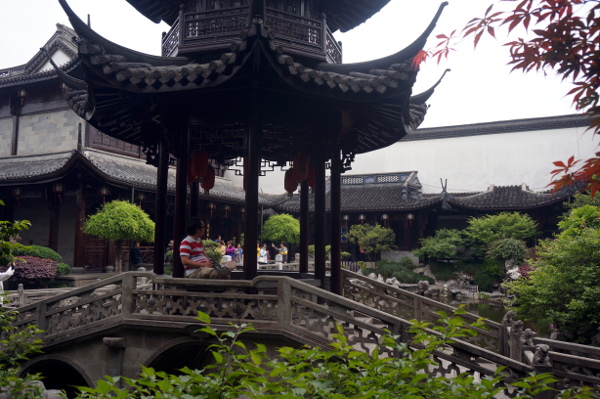
There, I learned quite a bit about Hu Xueyan (I was quite surprised that there was no Wikipedia article on him, so I wrote one). He was at one point the richest man in China. How rich was he? He has a friggin man-made cave in his house! If you think about it, all the truly rich people have caves in their house: Hu Xueyan, Bruce Wayne and Bill Gates. I wouldn’t put it past Elon Musk to have a cave in his house either. Of course, him being a rich guy, had pretty amazing womanizing habits too. The house was built mainly to house his 11 wives (who according to historical records, got along very well with each other). His story however, was a sad one. In a failed attempt to corner the silk trade, he died a penniless and depressed man.
Hangzhou, being the capital city of the Southern Song dynasty, was also a place of curious interest to me. It was in the Southern Song dynasty that the Chinese footbinding practices began. It was also in the Southern Song dynasty did women start losing their place in Chinese society (in fact, scholars place Qin Huai’s betrayal of Yue Fei to be the starting point). Prior to this dynasty, men and women were pretty much equal. Society during the Tang dynasty was very liberal and open, as such things like women’s rights were the norm. However, things were still pretty liberal during the early days of the Southern Song dynasty. Hangzhou afforded an opportunity to sorta experience it.
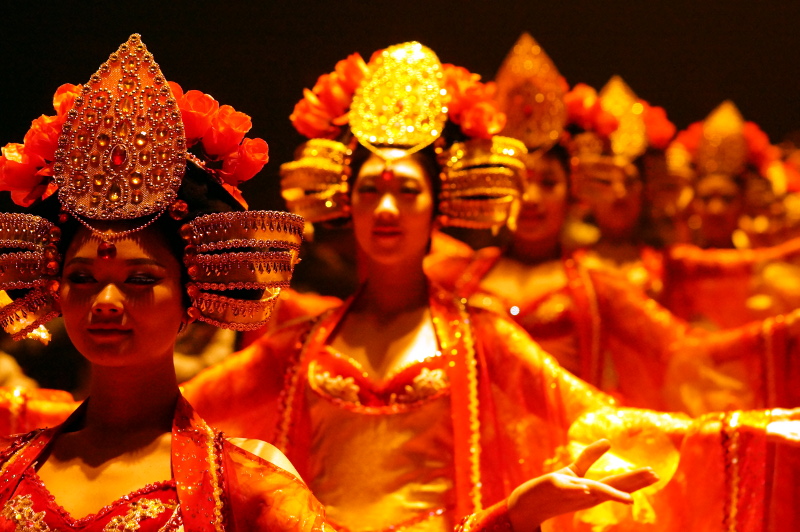
There exists a theme park of sorts (it has museums in it too) in Hangzhou, where the staff dress up in Song dynasty costumes – it’s called the Song Dynasty City, and I visited for a dose of Song Dynasty history (also, mainly for a show – 宋城千古情 (Thousand Year Romance of the Song City), which was excellent too. I recommend paying for the best seats in the house for that show). It was quite an interesting experience – to have read and knew something, and see it being re-enacted by live actors. The theme park is filled with all sorts of minutiae of the Song dynasty. Though I wish the level of detail could be deeper, I was happy about that. I got to learn a lot more about the Song dynasty (which is my second favourite ancient Chinese dynasty after the Tang, simply because it was the second most liberal dynasty).
Things I Thought About
I thought about a lot of things in Hangzhou, but I lost myself quite well in Hangzhou, soaking up the atmosphere and the beauty, and had neglected to jot down notes (okay, I admit, I forgot to bring my notebook out). Really, it’s such a beautiful place, it does seem like poor form to be writing notes for everything I do. I did however note that their bus stop displays run on Fedora Core, so do a number of wide screen ATMs around the West Lake (yes, really big screen ATMs that act as tour guides as well). Also, the public toilet near the Yue Fei temple had a knockoff Dyson hand dryer – it was branded Aike, if my memory serves.